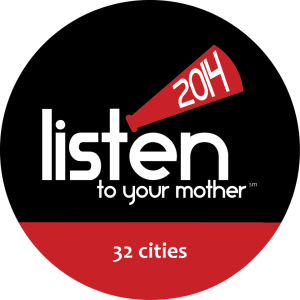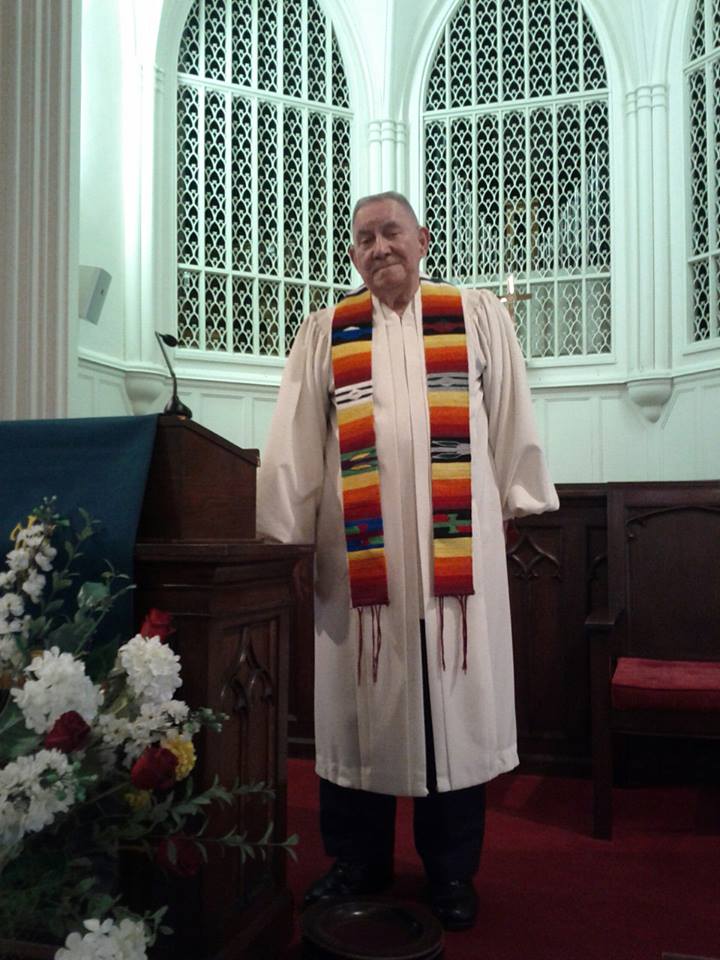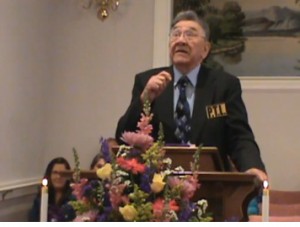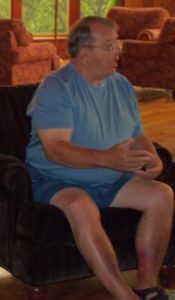 by Joy Salyers, Executive Director
by Joy Salyers, Executive Director
On May 6th and 8th, I’ll be participating in the Raleigh performances of a national movement called Listen to Your Mother. 32 cities nationwide are hosting these live staged readings in honor of Mother’s Day, each directed, produced, and performed by local communities, for local communities. Last year was the first time Raleigh participated, and the show quickly sold out. Not a surprise that North Carolinians like good stories! Having been to two read-throughs with the rest of the cast, I think this year’s show will be even better. Each person has a distinct style of writing and telling her* story, and each is deeply personal. Some are hilarious; others heart-wrenching (or both). Yet taken together larger themes and motifs begin to shine forth like metallic thread in woven cloth. (There are some excerpts from this year’s stories in this Carolina Parent article.)
Getting ready for the show has gotten me thinking a lot about stories — receiving them, composing them, sharing them — and what it means to be a teller of stories.
“So what do you do?”
“I’m a folklorist.”
“Oh, you’re a storyteller!”
This is the stereotypical conversation we folklorists have with people to whom the field of folklore is new. So maybe that’s why I have a bit of a chip on my shoulder about being asked if I’m a “storyteller.” I don’t think of myself as such, except to the extent that I believe humans are by nature storytelling animals. I usually patiently reply that, while some folklorists are storytellers, we are more likely to study stories than perform them.
Week before last I was at the Friday night opening to the 2014 Storytelling Festival of Carolina in Laurinburg, and someone asked me if I’d be staying for Saturday’s program. No, I said, I needed to be back in Raleigh by Saturday afternoon.
“Oh?” she asked. “What are you doing there?”
“Well,” I said, “We have a read through for this . . . storytelling performance I’m in.”
I almost laughed out loud at myself. How could I hold two completely different ideas about me and stories in my head at the same time? I realized that when I hear “storyteller,” I tend to think of performers of cultural stories – an expert teller of fairy tales, Jack tales, legends, or ghost stories, for example. For whatever reason, I’ve never been particularly interested in this genre of folklore. I enjoy reading them; I appreciate recognizing motifs from folk stories in modern narratives ranging from advertisements to TV shows. But I can’t imagine myself telling folk stories as a public activity. It’s just not something I grew up around at all.
However, when I think of “storytelling” another way, I can’t think of much I am more deeply grounded in – from immediate family to cultural heritage. For starters, my daddy is a Baptist preacher. My maternal grandfather was a Baptist preacher. I can’t even tell you how many uncles, cousins, and other relatives are preachers.


The other day my daddy was giving me a ride to work and we got started talking about what makes a good sermon. We decided that mountain folks have an edge when it comes to preaching, because we have a life of learning what makes a good story. That’s because we spend most of our time together sitting around eating amazing food and talking.
I grew up hearing my mother’s stories about the horse that got into the feed bin or the time the coal bin caught fire. At the annual family reunion, when the other kids wandered off to play outside, I stayed at the table with her and her four siblings as they swapped tales of childhood and argued about how things “really” happened.
Each of them has a distinctive style, but the most performative is Uncle Jeff.

On a few occasions I have actually been present when an event occurred worthy of being preserved in narrative; it is a treat to watch him consider it, work it over, and, the next few times you see him, hear it told back to you in various ways as he refines it, always just a little bigger and better than you remembered it happening.
Family stories get added to over time this way. Once Uncle Jeff told a long story about Uncle Clifford (their father’s brother) coming by the house to see if Jeff had his crosscut saw that their daddy had borrowed from him. Now by this time Grandpa had been dead for years, and Uncle Jeff relayed at length how he tried to explain to Uncle Clifford that he didn’t have that crosscut saw, he didn’t know anything about it, and had no idea where it might have ended up.
A year or two later when our family was back together, the youngest brother, Uncle John, was telling about a vision he had when he was very ill. “I saw Mama and Daddy plain as day,” he told us, and proceeded to share a moving testimony. After he finished, everyone was quiet for a few minutes, reflecting. Then Uncle Jeff leaned forward and said, “Well, if you see them again, ask Daddy where he put Uncle Clifford’s crosscut saw, ‘cause he’s worrying me to death about it!”
This kind of storytelling is what folklorists call “personal experience narratives” (or PENS). You can read all sorts of academic analysis of them; all I know is they’re my favorite kind of story.
I was delighted to discover that most of the featured tellers at the Storytelling Festival in Laurinburg specialized in these sorts of personal stories; their recollections and dramatic renderings had us alternately laughing and tearing up.
The Raleigh Listen to Your Mother show May 6 and 8 will be a little more formal. There will be paper to read from. There will be a podium and a microphone. But each person has spent as much time crafting her tale and contemplating her delivery as my Uncle Jeff ever has. There will definitely be both laughter and tears. I feel very honored to be a part of it, and to realize that thought I may not be a “storyteller,” I still tell a mean story!
*It just so happens that this year’s cast are all women. Anyone is welcome to submit a story related to mothering, whether it’s about your own mother, or being a single father, or any other aspect of the topic.
Leave a Reply